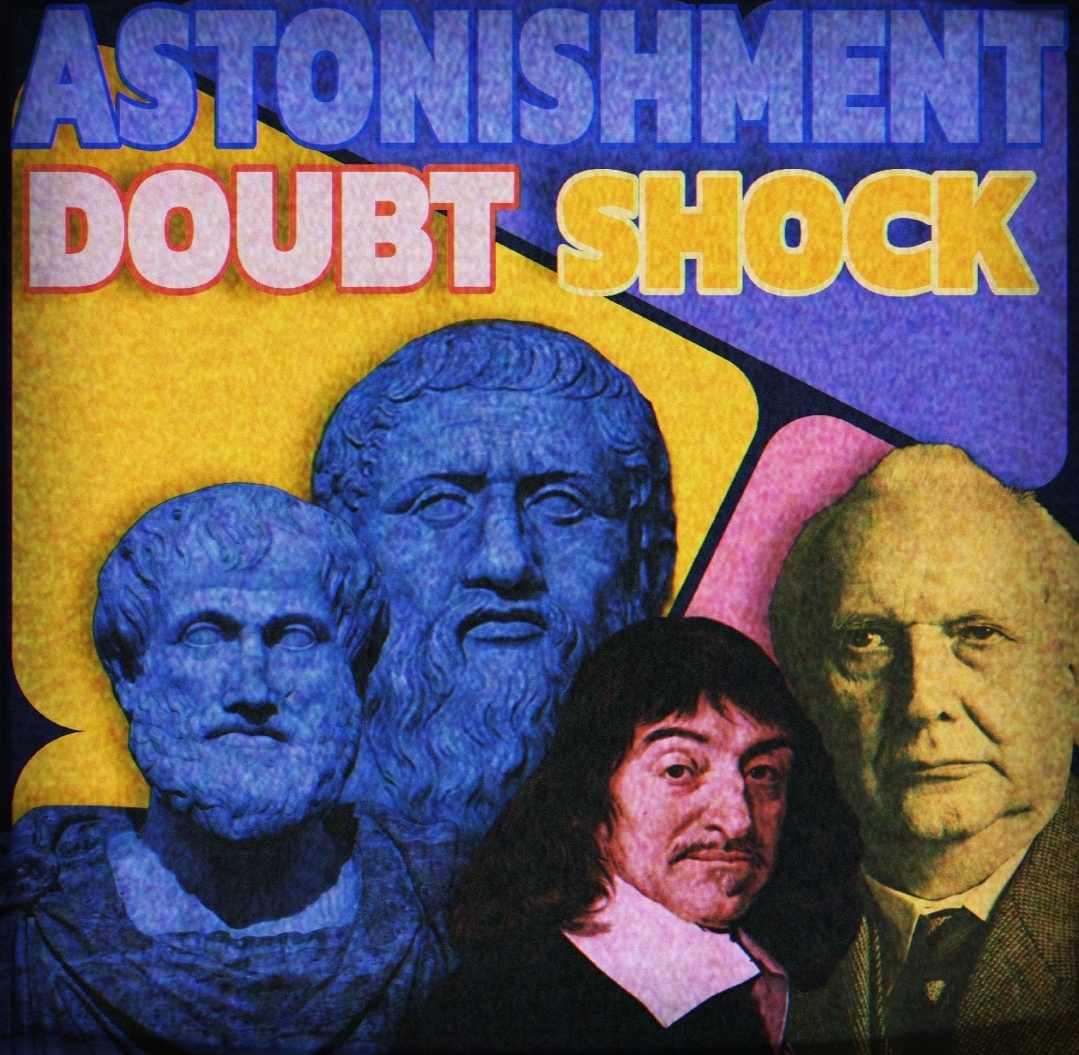
Before you start reading...
Please consider that this is my own research without exact literature and guides for the research, and also English is my second language, so I've translated all of this via Google Translate, for I have written in my own language (Serbian) originally. And I gotta add that this is all for education purposes, and if you do not agree with certain parts or think it is not enough information, please let me know down in the comments! Enjoy reading.
Astonishment
The first human impulse to philosophize.
Plato - claimed that "the attribute of a philosopher is that state of mind".
Aristotle:
1) amazement at obvious and everyday difficulties
● what makes a person happy? what is fair? etc...
2) wonder at natural phenomena
3) asking questions about the origin of everything that exists
Doubt
Another of the basic reasons for philosophizing.
There are legitimate reasons to doubt what the majority thinks is right.
Doubt is a state of indecision or hesitation regarding accepting or rejecting a given proposition.
René Descartes, developed the method of doubt as a fundamental approach to the state. He argued that before claiming to understand reality or existence, we must establish firm, unquestionable relations to knowledge. In his "Meditations on First Philosophy," Descartes proposed limiting beliefs to those who could withstand radical doubt. He questioned whether our senses, reasoning, and beliefs can be trusted, ultimately suggesting that this knowledge should be based on a foundation of undeniable truths. This approach involves hypothetical doubt where we temporarily treat everything as questionable to identify beliefs that are truly beyond doubt.
In the "First Meditation", Descartes showed how our senses can deceive us, leading to doubts about their reliability. He also pointed to the possibility that we are always dreaming or being tricked by "evil geniuses", casting doubt on our reasoning abilities. Through this radical skepticism, Descartes concluded that most beliefs, especially those based on sense experience, are uncertain.
Shock
A condition involving disorientation, uncertainty, fear, and discomfort. Disorientation and insecurity make a person feel as if they have been taken out of their comfort zone and the person loses a firm footing with previous understandings. Fear or discomfort threatens the sense of control over the world and oneself.
When are we in that state?
It occurs when we encounter something we have never seen or something that is the total opposite of what we know. Limit situations are also an excellent example. Because in such situations we are directly faced with something unknown and unsolvable.
What does it encourage us to do?
Shock is one of the basic motivations for philosophizing. It is also an opportunity for deep reflection and growth, as it forces us to question established patterns of thinking and open ourselves to new insights.
My understanding of the lesson
Wonder, doubt, and shock are related, and can be arranged in the following order:
- Shock - encountering a problem
- Wondering - wonder/curiosity about the problem
- Doubt - uncertainty about the solution to the problem (or the problem itself)
It can also appear out of order, singly or in "pairs" such as shock and wonder, shock and doubt, wonder and doubt.
All three can be found in the example of Plato's allegory of the cave:
1) Shock
● The captive, when he comes out of the cave, experiences the real truth about reality.
● Captives who hear the shadow of the freed captive talking about the truth of true reality.
2) Astonishment - The captive who came out of the cave.
3) Suspicion - The captives who remained in the cave and heard the shadow of the freed captive